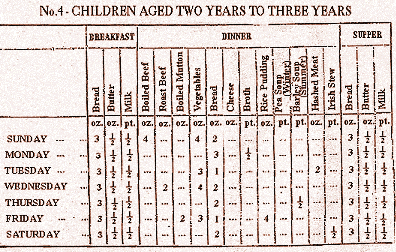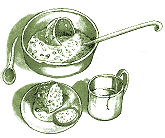British scientist Isaac Newton famously remarked that “if I have seen a little further, it is by standing on the shoulders of giants”. London School of Economics professor Julian Birkinshaw would argue that many of today’s CEOs owe a similar debt to key management innovators. In his recently released book (co-authored with Michael Mol) Giant Steps In Management: Innovations that change the way you work, Birkinshaw outlines the key practices that have shaped today’s organisations. CEO Forum asked him to explain why he wrote the book, why CEOs should care, and how CEOs can recognise when a new management innovation is likely to benefit their own organisation.
ceoforum.com.au: Why have you written this book about the history of innovations in management practices?
JB: The first point I wanted to make is that it is really important to distinguish between management ideas and management practices. Management ideas exist in the abstract; they are often quite idealistic or prescriptive in saying how businesses should operate, and not necessarily grounded in what any organisation is actually doing. Management practices, on the other hand, are much more specific – they are the particular behaviours, structures and ways of organising work that you might implement in a particular organisation. The “learning organization”, for example, is a management idea, while setting up a community of practice and a knowledge repository in your own organisation would be the associated management practices. I would argue that, generally speaking, management practices are far more useful to CEOs than management ideas, as they have provided much more concrete guidance on what a business should actually do to become more productive.
ceoforum.com.au: You have also spoken about the danger of business people getting seduced by elegant ideas – something another commentator has called the ‘smart talk trap’. Why do you think this seduction sometimes happens to very experienced business people?
JB: A lot of it is explained by the fact that most senior managers are continually operating under conditions of uncertainty. The strategic environment is continually changing – new competitors may be entering the market, new technologies are being developed, and new customer expectations are arising. The key question in business is always “what should we do?”, and when we are facing an uncertain situation, it is very natural to seek out others who may have more experience with the problems we are facing.
Of course, there is no shortage of advice available, and often we can get seduced by those would-be advisors who are better able to conceptualise the problem, and/or have more impressive intellectual credentials than our own. I would argue we are particularly vulnerable to conceptualisations that fit our understanding of what a ‘solution’ should look like. Any ‘solution’ will generally be more appealing when it is both rational (has a plausible and very overt logic to the approach) and progressive (is seen as something new, and is seen as an ‘advance’ on what we were doing previously. Businesses generally have an aversion to doing things that are not overtly logical, and/or hark back to a previous time in business!
Not all companies get trapped in this process, but there is certainly a danger for some companies that they will waste time and resources chasing bigger and better ideas, which may not even be able to be implemented in their organisation. It’s important to remember that a good strategy is often a simple strategy, as a pre-requisite for a successful strategy is that it is easily able to be communicated loud and clear across the organisation.
ceoforum.com.au: How does a CEO keep a balance between being open to new ideas and practices on one hand, while not being too credulous on the other?
JB: One mistake that is easy to make is to take a particular management practice out of it’s broader organisational context, and expect to achieve the same results using that practice in a totally different organisational context. A good example is GE’s “work-out” practice (ie. a practice at GE introduced by former CEO Jack Welch where large groups of employees get together to discuss problems, work out solutions, and discuss implementations with their managers in ‘town hall’ style meetings – Editor). Many companies who implemented this did not get the success they expected, because they found that the associated values and behaviours at GE that made this work – such as a commitment to facts, and the idea that it was acceptable to challenge your boss in the pursuit of those facts – were not present in their own organisations. As a result, the practice was much less effective that it had been (and is) at GE, where there are a lot of complementary practices that make it work.
ceoforum.com.au: There certainly has been an explosion of management books and literature over the last twenty years or so. What do you see as the two or three most important management practices that have been developed over the years?
JB: Ironically, perhaps, I would say the three most important management practices around today are, in some cases, almost a hundred years old. Taylorism, or the rational organisation of work processes, with the associated ideas of task-specialisation and process improvement, is still enormously influential today, and you can see echoes of it in almost any process engineering approach, such as Six Sigma. Alfred P. Sloan really invented the idea of the multi-divisional corporation in the 1920s at General Motors, and we can see a lot of his thinking about decentralisation of decision-making present in organisational structures today. Finally, W.Edwards Deming’s ideas and practices about quality management transformed first Japanese manufacturing, then world manufacturing and has now spread into almost every industry sector. Most organisations today are built on variants of these management innovations. This has allowed us to make enormous strides in productivity and efficiency, though I would argue it has also reduced the level of innovativeness and creativity, particularly in larger organisations.
ceoforum.com.au: What advice would you give a CEO on how they can best decide whether a management idea or practice they or a colleague discovers can actually benefit their organisation?
JB: It sounds deceptively simple, but I would say that there are three very simple questions to ask. Firstly, how would we implement that idea? There are many interesting, even fascinating, ideas that people have about business, but only a small subset of them can be actually translated into effective organisational practices.
Secondly, how is that idea or practice different? A lot of management concepts are simply old wine in new bottles – they are simply recycled ideas which you may have tried before and had limited success with. So make sure there is something really new that is worth investigating, not just some attractive new packaging.
Finally, ask yourself ‘how would that work for our organisation?’ Make sure you can identify the particular values, attitudes and behaviours that make the practice work, and make sure that those things are present in your own organisation. Then and only then do you have a chance of implementing the practice successfully.

 The most common of these being measles,
The most common of these being measles, 
